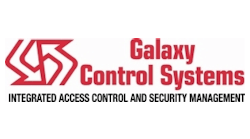The federal government is the largest single customer in the world, which, to a small business vendor, can seem overwhelming. The good news is that the federal government has a goal of awarding 23 percent of contracting dollars to small business. Additionally, under federal regulation, large federal prime contractors with significant federal contracts are required to subcontract to small businesses, further increasing the opportunities in this market.
There are certainly differences in selling access control systems to the government vs. selling to a commercial account. For one, vendors must have certain resources and product certifications in place to meet regulations or contract requirements. Obtaining and maintaining these certifications and requirements is a necessity for the provider and will help generate the new business that the SMB is looking for.
In addition, there are a number of steps the SMB access control dealer/integrator can implement to take advantage of the growing demand for access control systems within government agencies and departments. Here are five keys:
1. Product eligibility. The first step in selling to the government is to have a General Service Administration (GSA) Schedule (www.gsa.gov) contract vehicle – or the ability to use the access control manufacturer’s contract vehicle – to give your company an easier selling path. The GSA schedule is the government’s primary purchasing contract vehicle; it allows the purchase of goods and services through long-term agreements from contractors at what is considered by the government as a discounted rate.
Additionally, the product should be a Federal Identity, Credential and Access Management (FICAM)-certified access control system. The certification ensures that the product can meet the access and identity needs of the government customers in accordance with various government compliance regulations, including Homeland Security Presidential Directive 12 (HSPD-12) and the Federal Information Processing Standard (FIPS 21), among others. The government’s FICAM program supports the adoption of interoperable and standards-based access control technologies to secure U.S. federal government facilities from physical and cyber threats.
2. Company Eligibility. Companies wanting to sell to the federal government must be registered at www.SAM.gov (System for Award Management) in order to obtain contracts, and to receive payment should a contract be won. In order to register with SAM, your company must have a Data Universal Number System (DUNS) number from D&B. Individual company evaluations and eligibility for federal government bids are made per Federal Acquisition Regulation (FAR) Part 9, which covers financial resources; delivery capabilities; performance record; business ethics; experience and facilities; and be otherwise qualified and eligible. Various government contracts may have additional requirements as delineated by the specific bid documents.
Confidence in the SMB access control dealer/integrator’s ability to satisfactorily perform contract requirements is an important factor for the government customer in making best value decisions in the acquisition of a system; however, compliance with the rules and regulations of federal procurement are the determining factor as to a company’s ability to perform. Since government contracts are awarded with federal tax dollars, the government does everything possible to ensure the bid process is equal. Compliance with rules and regulations of federal procurement make a level playing field.
3. Be ready to provide ongoing service. Some federal government contracts/bids for access control systems may require ongoing service and support to ensure continuous and reliable operation. Requirements for the service and support aspects of the contracts will be spelled out in detail in the Request for Bid documents, but keep in mind that delays are unacceptable for government agencies – especially those tasked with highly sensitive or mission-critical operations that cannot be interrupted while waiting for a callback. Delays compromise security, so customers deserve a go-to person they can rely on when they need them most. In a good business relationship, that go-to individual has access to everyone within the organization because helping the customer is paramount; no one worries about whose job it is because they understand that helping the customer is everyone’s job.
4. Make sure your business is agile. Unlike a commercial sale, the government sets up the terms of its purchases, and the SMB access control dealer/integrator must decide whether to take the contract such as it is or leave it – that is, to bid on the contract or not. The government also has the right to make changes to its purchase orders, delivery orders and contracts during the course of contract performance. This will all be spelled out in either the bid documents or the applicable FARs.
5. Customize. Every government facility and installation is unique, even when facilities are built using the same construction and design models. Unfortunately, off-the-shelf access control solutions may not always provide the versatility that individualized installations require in bid documents. Small/medium providers – with their often close connections between various departments such as sales and engineering – thrive on customization and focus on catering to customers’ specific needs as outlined in the bid documents. A focus on technology and customer service enables smaller companies to provide the high level of customization that may be necessary.
Federal isn’t the Only Ballgame
While the federal government may be the largest single customer in the world, state, county and municipal governments also provide significant business opportunities for the SMB security service provider. Of particular interest may be municipal agencies such as parking bureaus, water and sewer commissions, or even boards of education, as they regularly do business with small, local companies.
It is important to understand that doing business with a municipal government can be different than typical federal/state selling. Sales cycles can be extremely slow, and prospective contractors often face a good deal of red tape. Local governments rarely have the ability or desire to move quickly. Many contracts, particularly larger ones, require a long bidding process and the approval of politically appointed boards which do not always find it easy to reach a consensus. The results of a significant contract award, however, can be quite gratifying.
Use the following tips to help assist you in reaching your potential in the lucrative municipal market:
1. Learn how each agency does business. Spend time up front researching the contracting methods used by each municipality you are targeting. Each town or city does things a little differently; their political personalities vary, as do their contracting methods. Contact the people in charge of purchasing at the municipal agency you think would be interested in using your access control products and services. What procedures do they use? What information do they need to see before considering a purchase? How are buying decisions made? Who is responsible for developing the appropriate RFPs? What requirements does your company need to meet? What politics are involved in purchases?
2. Look for influence at all levels of government. Do not limit your sales efforts to the contracting agency. Sell across the government spectrum to find people who can champion your business and products. In a political arena, there are many others who can help you get your products or services in front of the right agency.
3. Make RFPs work for you. At almost every level, government contracts are awarded through formal bidding using requests for proposals (RFPs). These RFPs are used to ensure that the contract goes to the lowest possible bidder who can meet the agency’s specific, stated needs. Even if you offer a unique product or service, there still may need to be an RFP. The point of this process is simple; it avoids appearances of favoritism to a particular supplier, and allows the government to show that tax dollars are being spent efficiently. Shrewd SMB owners can turn this process to their favor by speaking regularly with the office responsible for developing the RFP and becoming a resource to them. If you offer some kind of unique solution, work with the agency to help draft the RFP. Make sure the published bid documents include the proprietary features your access control system offers. The bottom line: the RFP should be worded in a way that makes your SMB the ideal bidder.
Robert Laughlin is President of Galaxy Control Systems. Request more info about the company by visiting www.securityinfowatch.com/10213742.




